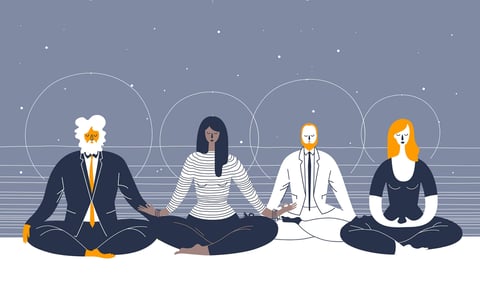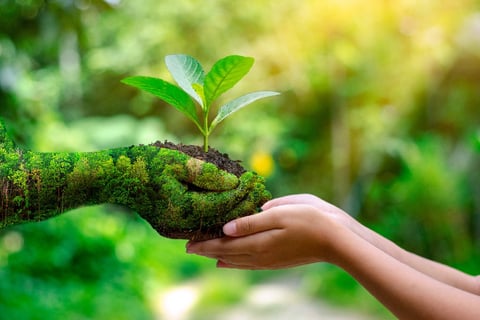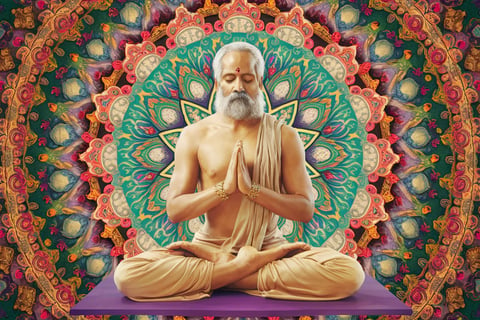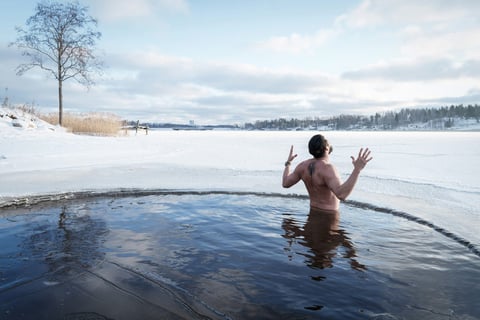
Unlocking Wellness: The Diverse Cultural Perspectives on Self-Care
In today's interconnected world, understanding cultural perspectives on self-care has become increasingly important. This comprehensive guide explores how different cultures approach wellness and self-care practices, drawing from traditional wisdom while acknowledging modern applications.


In a world increasingly focused on self-care, the journey to wellness is often painted in broad strokes of modern techniques and trending practices. Yet, beneath this veneer lies a rich tapestry woven from diverse cultural perspectives that have long embraced holistic healing traditions. From the calming tea ceremonies of East Asia to the rhythmic dance rituals of Indigenous communities, each cultural approach offers unique insights into self-care—practices that not only nurture our bodies but also harmonize our minds and spirits.
Clearmindhealing invites you to explore these varied landscapes of traditional wellness methods and ethnic health practices that have sustained generations. As we delve into the sacred customs of different societies, you'll discover how ancient wisdom can inform modern-day routines and address contemporary challenges. By understanding cultural influences on personal care routines, we can broaden our toolkit for well-being, enriching our lives with heritage-based self-care traditions that resonate deeply within us. Join us as we embark on an enlightening journey through cross-cultural healing practices—a path where every tradition holds the promise of renewal and balance in today’s fast-paced world.
Introduction: Why Understanding Cultural Perspectives on Self-Care is Essential
Understanding cultural perspectives on self-care is essential in today’s interconnected world, as it enriches our wellness practices and fosters a more inclusive approach to well-being. Cultural diversity shapes how individuals perceive and prioritize self-care, influencing everything from daily rituals to overarching philosophies. Recognizing these varied approaches enables us to create a comprehensive framework that acknowledges the unique needs of different communities, enhancing mutual respect and dialogue.
Moreover, exploring global self-care practices reveals innovative methods that might be overlooked in mainstream wellness discussions. For instance, while Western societies may emphasize individualistic strategies like therapy or gym memberships, many Eastern cultures incorporate communal activities or spiritual traditions such as meditation and yoga into their self-care routines. By embracing this diversity, we not only broaden our understanding but also uncover profound insights that can enhance personal well-being across cultural boundaries. The beauty of self-care lies in its adaptability; by respecting and learning from diverse wellness approaches, we foster a richer tapestry of health that benefits everyone.
The Western Approach to Self-Care: Modern Practices and Philosophies
In today's fast-paced world, the Western approach to self-care has evolved into a comprehensive lifestyle that prioritizes mental and physical well-being. With an increasing focus on mindfulness and meditation, individuals are discovering the profound impact of these practices on reducing stress and enhancing overall happiness. Mindfulness encourages living in the present moment, allowing people to appreciate life's simple pleasures while cultivating a deeper sense of peace.
Simultaneously, fitness culture has become an integral part of Western self-care practices. Whether it's through yoga classes that combine physical movement with meditative breathing or high-intensity interval training sessions designed to boost cardiovascular health, there is a growing recognition of exercise as a vital component of holistic well-being. This cultural shift towards prioritizing fitness not only improves physical health but also contributes significantly to mental clarity and emotional resilience.
Moreover, current health and wellness trends emphasize personalized approaches to nutrition and lifestyle choices. From plant-based diets that support both personal health and environmental sustainability to digital detoxes aimed at reducing screen time for better sleep quality, these trends reflect a broader understanding that self-care is not one-size-fits-all. By embracing these modern practices and philosophies, individuals are empowered to craft unique self-care routines tailored to their specific needs.
The Western approach to self-care is more than just a trend; it's a crucial investment in one's long-term health and happiness. By integrating mindfulness, fitness culture, and personalized wellness strategies into daily life, we can foster a balanced lifestyle that nurtures both body and mind—ultimately leading us toward greater fulfillment and vitality.
Eastern Traditions: Ancient Wisdoms Guiding Modern Self-Care Rituals
Eastern wellness practices, rooted in centuries of observation and experience, offer a holistic health approach that is increasingly relevant in modern self-care rituals.
Take Traditional Chinese Medicine (TCM), for example. It emphasizes harmony between the body and its environment through practices like acupuncture, herbal medicine, and tai chi. These methods not only address physical ailments but also promote mental clarity and emotional stability. By focusing on the body's energy flow or "qi," TCM provides a comprehensive framework for achieving overall well-being.
Similarly, Ayurveda principles from India advocate for a balanced lifestyle tailored to an individual's unique constitution or "dosha." This ancient system encourages mindful eating, yoga, meditation, and detoxification processes that align with one's natural rhythms. By incorporating these practices into daily routines, individuals can enhance their vitality and resilience against stressors.
Embracing these Eastern traditions doesn't mean abandoning modern medicine; rather, it complements it by offering preventive care strategies that nurture both body and mind. As more people seek sustainable ways to improve their quality of life, integrating these time-honored techniques can lead to profound transformations in personal health journeys. It's time we recognize the invaluable insights these ancient wisdoms provide as they guide us towards more mindful self-care rituals today.
African Perspectives on Community and Holistic Well-being as Forms of Self-Care
African perspectives on community and holistic well-being provide profound insights into self-care practices that are both nurturing and transformative. Rooted in African communal values, these approaches emphasize the interconnectedness of individuals within their communities, fostering a sense of belonging and shared responsibility for each other's welfare.
Traditional African medicine practices are deeply intertwined with holistic healing methods that encompass not only physical health but also spiritual well-being. These practices honor the wisdom of ancestors and nature, utilizing natural remedies and rituals that have been passed down through generations. By embracing these time-honored traditions, individuals can experience a more comprehensive form of healing that addresses mind, body, and spirit.
Spiritual well-being in Africa is often seen as an integral part of one's overall health. It involves connecting with one's inner self, community, and environment through rituals and ceremonies that celebrate life’s milestones. This spiritual approach to self-care encourages introspection and mindfulness while promoting resilience against life's challenges.
By integrating African communal values and holistic healing methods into our modern self-care routines, we can cultivate a more balanced lifestyle. These practices remind us of the importance of community support systems while offering alternative ways to nurture our mental, physical, and spiritual health. As we seek ways to enrich our lives through meaningful self-care practices, let us look towards Africa's rich heritage for inspiration—a testament to enduring wisdom in nurturing humanity's well-being as a whole.
Indigenous Approaches to Balance and Harmony in Nature for Self-Care
Many are seeking solace and balance in their lives, and indigenous healing methods offer profound insights into achieving this harmony. Rooted in centuries-old traditions, these practices emphasize a deep connection with nature as a cornerstone for well-being. Indigenous cultures have long understood that true health extends beyond the physical body to encompass the mind and spirit, advocating for a holistic approach that modern self-care routines often overlook.
Nature connection for well-being is not just about spending time outdoors; it's about fostering a relationship with the natural world that nurtures inner peace. Indigenous traditions teach us to observe and respect the rhythms of nature, aligning our lives with its cycles to restore balance. This might involve engaging in spiritual rituals indigenous cultures have practiced for generations—rituals that honor the earth's elements and invite personal reflection.
Embracing these harmony with nature traditions can lead to transformative self-care experiences. By integrating indigenous wisdom into our daily lives, we cultivate an awareness of our interconnectedness with all living things. This shift in perspective not only enhances our mental health but also empowers us to live more sustainably and consciously.
Incorporating these practices into your routine doesn't require drastic lifestyle changes but rather an openness to learn from those who have lived in harmony with nature for millennia. As we strive for personal wellness amidst modern challenges, let us draw inspiration from indigenous approaches that remind us of the profound healing power found within Mother Earth herself.
The Influence of Latin American Cultures on Collective Joy and Celebration as Elements of Self-Care
While many turn to solitary practices like meditation or journaling, Latin American cultures offer a unique perspective by emphasizing collective joy and celebration as essential elements of wellness. These traditions highlight the profound impact that community-focused self-care can have on mental health.
Latin American wellness traditions prioritize togetherness and shared experiences as vital components of well-being. From vibrant festivals to intimate family gatherings, these cultures understand that joy is amplified when experienced collectively. This sense of community not only strengthens social bonds but also provides emotional support, creating a network where individuals feel seen and understood.
Celebration for mental health benefits is deeply rooted in these traditions. Whether it's dancing during Carnival in Brazil or sharing meals during Día de los Muertos in Mexico, these events serve as powerful reminders of life's beauty and resilience. They encourage people to step out of their daily routines, fostering an environment where stress is alleviated through laughter and connection.
By embracing the influence of Latin American cultures on self-care practices, we can learn valuable lessons about the importance of communal joy. Integrating these elements into our own lives can lead to improved mental health outcomes, reminding us that sometimes the best way to care for ourselves is by celebrating with others.
Navigating Multi-cultural Influences to Enhance Your Personal Self-Care Routine
In today's interconnected world, embracing multi-cultural influences can transform your personal self-care routine into a rich tapestry of wellness practices. By integrating diverse wellness techniques into daily life, you not only enhance your physical and mental well-being but also cultivate a deeper understanding and appreciation for the world's varied cultures.
Consider starting your day with yoga, an ancient Indian practice that harmonizes mind and body through movement and breath. This can be complemented by the Japanese ritual of Shinrin-yoku, or forest bathing, which encourages immersion in nature to reduce stress and boost mood.
Incorporating multi-cultural self-care tips doesn't require a complete lifestyle overhaul—small changes can make a significant impact. For instance, try adopting the Scandinavian concept of hygge by creating cozy spaces that promote relaxation and contentment in your home. Or explore traditional Chinese medicine practices like acupressure to relieve tension.
The beauty of integrating these diverse techniques lies in their adaptability; you can tailor each practice to fit seamlessly into your existing routine. As you explore these global traditions, you'll find not only enhanced well-being but also a more profound connection to the world around you—a truly enriching journey toward holistic self-care.
Conclusion: Embrace the Global Tapestry of Self-Care to Enrich Your Life Today!
In a world that is more interconnected than ever, embracing the global tapestry of self-care is not just a choice—it's an imperative for enriching your life. By integrating diverse self-care practices from around the globe, you open yourself to a wealth of wisdom and techniques that can transform your well-being. Imagine starting your day with mindfulness rituals from Japan, invigorating your body with yoga traditions from India, and nurturing your spirit with Scandinavian concepts of hygge. Each practice offers unique benefits that cater to different aspects of mental, physical, and emotional health.
By adopting this multicultural approach to self-care, you are not only enhancing your personal wellness journey but also fostering a deeper appreciation for the rich diversity our world has to offer. This holistic method encourages you to step beyond familiar routines and explore new ways of nurturing yourself—ways that might resonate more deeply with where you are in life right now.
So why wait? Embrace this vibrant mosaic of global self-care practices today and watch as it enriches every facet of your life. The world is full of beautiful traditions ready to guide you towards greater balance and happiness; all it takes is an open heart and mind to begin weaving them into your daily routine.
Frequently Asked Questions (FAQs)
Q: What is cultural self-care?
A: Cultural self-care refers to wellness practices that are rooted in specific cultural traditions and beliefs. It includes physical, mental, and spiritual practices that have been developed and refined over generations within different cultural contexts.
Q: How do different cultures approach mental health?
A: Different cultures have varying approaches to mental health:
- Eastern cultures often emphasize meditation and mindfulness
- Western societies typically combine therapy with medical treatment
- Indigenous cultures frequently incorporate community healing and natural remedies
- Some cultures use spiritual practices for mental wellness
Q: Can I incorporate practices from other cultures into my self-care routine?
A: Yes, but it's important to:
- Respect and acknowledge the cultural origins of practices
- Understand the proper context and application
- Learn from authentic sources
- Practice cultural appreciation rather than appropriation
Q: How do traditional and modern self-care practices complement each other?
A: Traditional and modern practices can work together by:
- Combining ancient wisdom with scientific research
- Adapting traditional practices to contemporary lifestyles
- Using technology to make traditional practices more accessible
- Maintaining the core principles while updating the delivery methods
Implementing Cultural Background Self-Care Practices
To effectively incorporate cultural self-care practices:
- Research and understand the cultural context of practices
- Start with simple, accessible methods
- Respect traditional wisdom while adapting to modern needs
- Seek guidance from cultural practitioners when appropriate
The Future of Perspective Cultural Self Care
As we move forward, cultural self-care practices are likely to:
- Become more integrated into mainstream healthcare
- Adapt to technological advances while maintaining traditional principles
- Influence global wellness trends
- Help create more inclusive and diverse approaches to health and wellness
Resources for Further Learning
To deepen your understanding of cultural self-care:
- Consult cultural health practitioners
- Read academic research on traditional healing practices
- Participate in cultural wellness workshops
- Connect with community organizations that preserve traditional practices


















Discover tips for sleep, detox, and mindfulness.
© 2024. All rights reserved.
